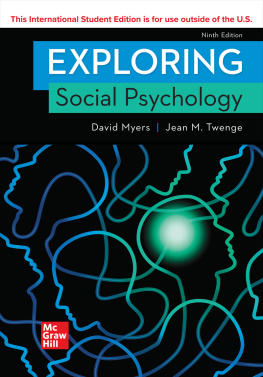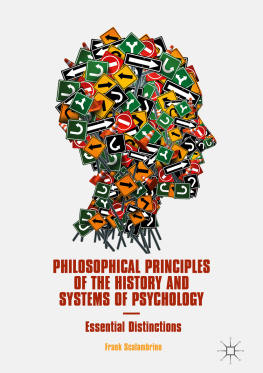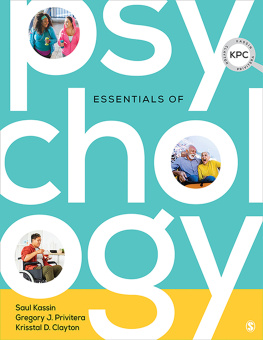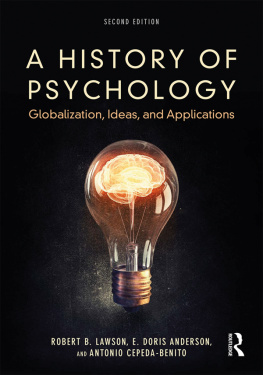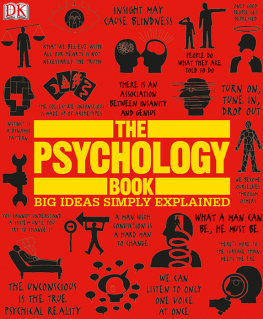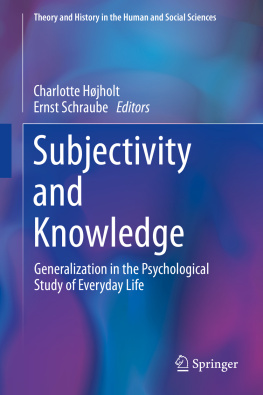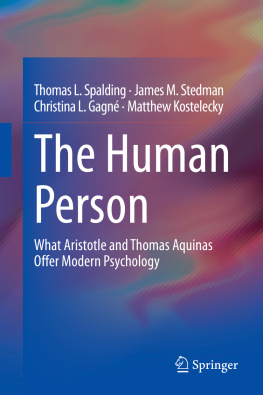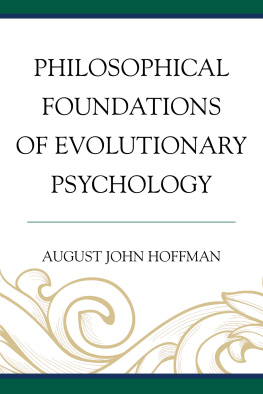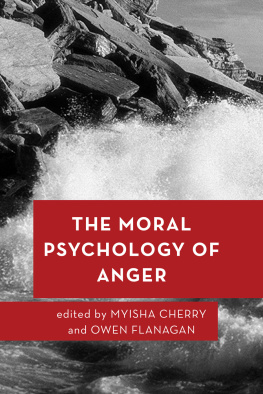A Critical History and Philosophy of Psychology
In line with the British Psychological Societys recent recommendations for teaching the history of psychology, this comprehensive undergraduate textbook emphasizes the philosophical, cultural, and social elements that influenced psychologys development. The authors demonstrate that psychology is both a human (i.e., psychoanalytic or phenomenological) and natural (i.e., cognitive) science, exploring broad social-historical and philosophical themes such as the role of diverse cultures and women in psychology, and the complex relationship between objectivity and subjectivity in the development of psychological knowledge. The result is a fresh and balanced perspective on what has traditionally been viewed as the collected achievements of a few great men.
With a variety of learning features, including case studies, study questions, thought experiments, and a glossary, this new textbook encourages students to critically engage with chapter material and analyze themes and topics within a social, historical, and philosophical framework.
A Critical History and Philosophy of Psychology
Diversity of Context, Thought, and Practice
Richard T. G. Walsh
Thomas Teo
Angelina Baydala
University Printing House, Cambridge CB2 8BS, United Kingdom
Published in the United States of America by Cambridge University Press, New York
Cambridge University Press is part of the University of Cambridge.
It furthers the Universitys mission by disseminating knowledge in the pursuit of education, learning, and research at the highest international levels of excellence.
www.cambridge.org
Information on this title: www.cambridge.org/walsh
Richard T. G. Walsh, Thomas Teo, and Angelina Baydala 2014
This publication is in copyright. Subject to statutory exception and to the provisions of relevant collective licensing agreements, no reproduction of any part may take place without the written permission of Cambridge University Press.
First published 2014
Printing in the United Kingdom by TJ International Ltd. Padstow Cornwall
A catalogue record for this publication is available from the British Library
Library of Congress Cataloguing in Publication data
Walsh, Richard T. G., 1942
A critical history and philosophy of psychology : diversity of context, thought, and practice /
Richard T.G. Walsh, Thomas Teo, Angelina Baydala.
pages cm
ISBN 978-0-521-87076-4 (hardback) ISBN 978-0-521-69126-0 (paperback)
1. Psychology History. 2. Psychology Philosophy. I. Teo, Thomas, 1963
II. Baydala, Angelina. III. Title.
BF81.W296 2014
150.9dc23 2013022559
ISBN 978-0-521-87076-4 Hardback
ISBN 978-0-521-69126-0 Paperback
Cambridge University Press has no responsibility for the persistence or accuracy of URLs for external or third-party internet websites referred to in this publication, and does not guarantee that any content on such websites is, or will remain, accurate or appropriate.
Contents
Figures
Matthi/Shutterstock.com
Janaka Dharmasena/Shutterstock.com
Victoria and Albert Museum, London/V&A Images all rights reserved
Vladislav Gurfinkel/iStock.com
HultonArchive/iStockphoto.com
Everett Collection Historical/Alamy
The Trustees of the British Museum
markaumark/123rf.com
Victoria and Albert Museum, London/V&A Images all rights reserved
Duncan Walker/iStockphoto.com
Photograph by Dorothea Lange, courtesy of the Library of Congress, Prints & Photographs Division, FSA/OWI Collection , LC-USF34-T01009095-C
Victoria and Albert Museum, London/V&A Images all rights reserved
Courtesy of Brookhaven National Library
seamartini/iStockphoto.com
City of London
North Wind Picture Archives/Alamy
Wojciech Zwierzynski/iStockphoto.com
Photograph by Philippe Halsman, courtesy of the Library of Congress, Prints & Photographs Division, PH Filing Series Photographs Collection , LC-DIG-ppmsca-09633
Neftali/Shutterstock.com
Courtesy of NASA/JPL/UCSD/JSC
Courtesy of the Library of Congress, Prints & Photographs Division, LC-DIG-ppmsca-27713
The Trustees of the British Museum
Victoria and Albert Museum, London/V&A Images all rights reserved
Olga Lipatova/Dreamstime.com
Tables
Boxes
Preface
In this textbook on the history and philosophy of Psychology our intention is to provide a comprehensive but accessible account with international content suitable for a one-term or two-term, advanced undergraduate course in which the instructor aims to foster critical thinking about the disciplines intellectual and social development. Below we describe our intellectual approach, text structure and chapter content, and the educational intent and pedagogical features of our text.
The distinctive characteristics of the text are as follows:
- Integrates the history and philosophy of Psychology.
- Distinguishes between natural-science and human-science Psychologies.
- Relies on current scholarship in the history and philosophy of Psychology.
- Takes an international and contextualized approach to psychological ideas.
- Includes applied and professional psychology, current developments in the discipline, and Psychologys research traditions.
- Fosters students critical thinking about the history and philosophy of Psychology.
- Facilitates instructors employing a different order of presenting the twelve chapters, because they are relatively self-contained, yet thematically linked.
Intellectual approach
As teachers and authors of works on historical and philosophical issues in Psychology, we were dissatisfied with the coverage of these issues in the available textbooks. Whether these works were primarily historical, theoretical, or an integration of both, the authors seemed to be relatively uncritical and to take for granted psychologists standard concepts, theories, research findings, methods, and professional practices, all of which have a history and philosophical content. Writing from a standpoint of Anglo-American nations, the authors tended to celebrate the achievements of mainly White men, universalized across times, places, and persons (Brock, 2006a).
However, the Psychology typically practised in the USA, which has prevailed internationally since World War II, represents one perspective, Psychology as a natural science . As we note throughout this textbook, another perspective, Psychology as a human science , has flourished simultaneously since the disciplines formal inception, if in circumscribed ways and contexts. Arguably, then, diverse philosophical positions best characterize Psychologys history (G. Richards, 2010; R. Smith, 1997).
Here we describe the particular emphases that we place in practising our intellectual approach, our conception of historical scholarship (i.e., historiography), and the critical standpoint that we adopt.
Emphases


